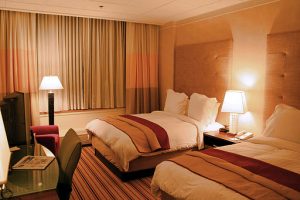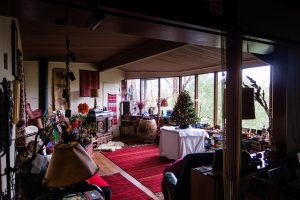When considering your lodging accommodation options, what’s most important to you? Do you want a standard cookie cutter room that will be the same(ish) wherever you go? Or do you want to experience something new and unique each time you travel?
If you’ve only ever stayed in hotels, why? If you’re a fan of Airbnb or independent bed and breakfast operations, what appeals to you about them? Or if you love to stay in cozy little B&Bs, what draws you to them?
These are some good questions to ask yourself as you think through your itinerary each trip. There are some good reasons to stay at any of these three options, and a few downsides as well.
 Hotels provide a consistent experience, they’re located close to major attractions or downtown business districts, and you can count on them being clean and maintained for you during your stay. You’re also rewarded with loyalty points and other benefits like upgrades for frequent stays.
Hotels provide a consistent experience, they’re located close to major attractions or downtown business districts, and you can count on them being clean and maintained for you during your stay. You’re also rewarded with loyalty points and other benefits like upgrades for frequent stays.
Of course, if you’re looking for an individual, unique experience, hotels won’t give that to you. They’re there for convenience and/or price. It’s a place to sleep, or to be pampered if you’re staying at a luxury vacation hotel, but you’re still just one of hundreds of guests.
If you want to investigate a specific part of a city, live like the locals, have more room to relax, and cook some of your own meals, Airbnb offers many options.
Typically, you have a more personal experience, possibly interacting with the owner of the property who may also live nearby. You’re often nestled in a residential neighborhood, and you can discover local finds that are off the beaten path from the heavily frequented tourist areas. You can also save money on your trip by eating in. In order to compete with chain hotels, Airbnb is now rewarding loyalty as well.
On the downside, you don’t always get as much privacy, as some Airbnb rooms are just a bedroom in someone’s house or apartment. That’s fine if you’re going to be out for most of the day, and if you don’t mind bunking with a stranger, but some people don’t like the idea. (If that’s you, keep in mind that you can specify a private house or private apartment on the website; you won’t be surprised with a roommate when you book your Airbnb.)
Long before Airbnb, independent bed and breakfasts provided a similar experience for travelers seeking something unique.
When you book your stay at a bed and breakfast, you may have all the benefits of a hotel—clean, maintained rooms—but you also get the chance to interact with a smaller group of guests and the owner/operator, who may be cooking your meals and can provide expert knowledge about the area’s sites and history. In fact, if you love history, a B&B may be your best bet, as many of them are originally historic homes that have been converted into a place to visit and relax.
But on the downside, it’s like staying in a small hotel. You may have your own bathroom or you may end up sharing one with other guests. If you need your privacy and space, be sure to check out the B&B’s website and room type before you commit.
What’s your lodging preference when you travel? What makes it your favorite? What option do you like the least? Tell us about it in the comments below, on our Facebook page, or in our Twitter stream.
Photo credit: David Jensen (Wikimedia Commons, Public Domain)
Scott Cutler, an Airbnb house in Santa Barbara, CA (Flickr, Creative Commons)

